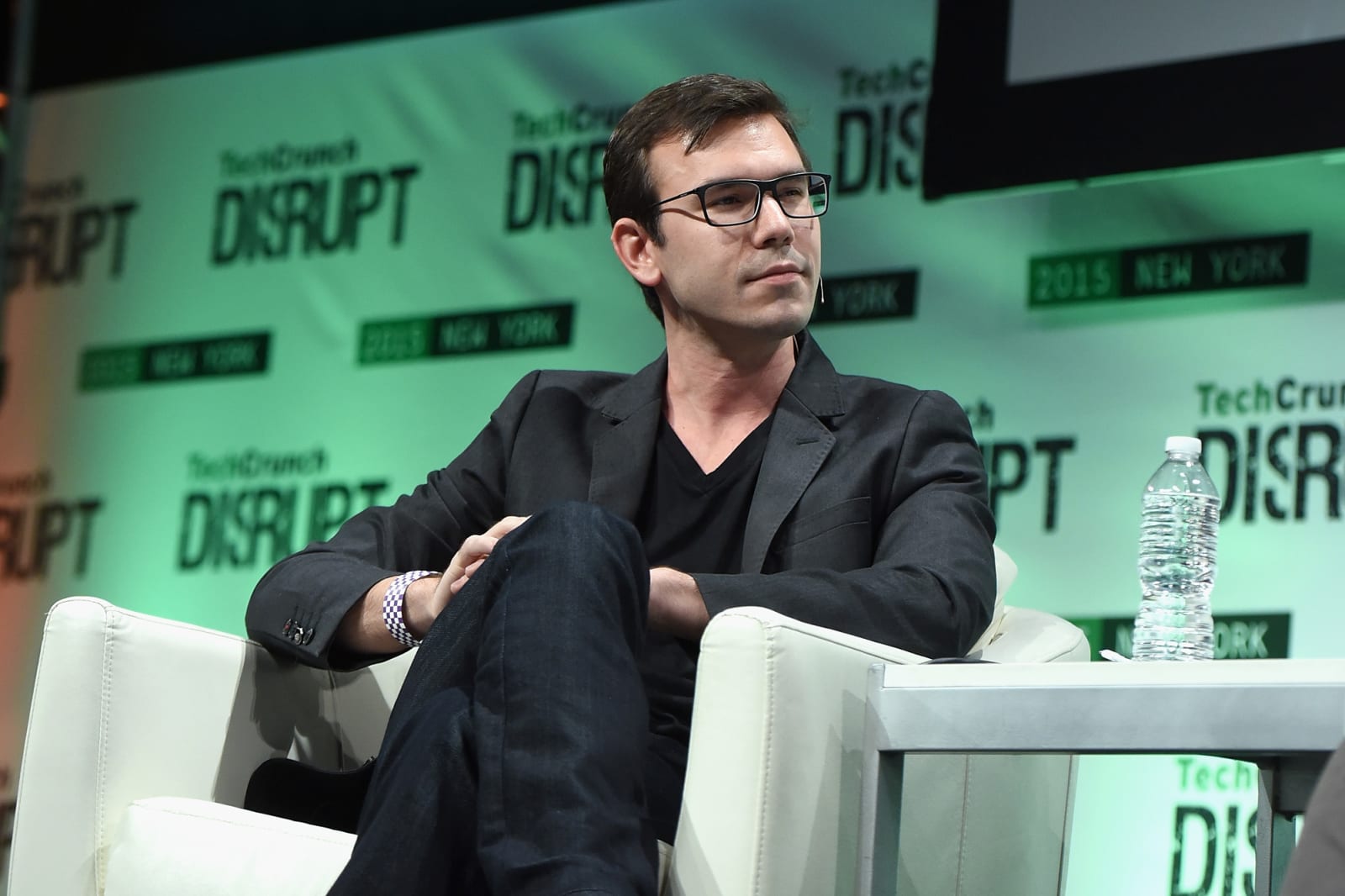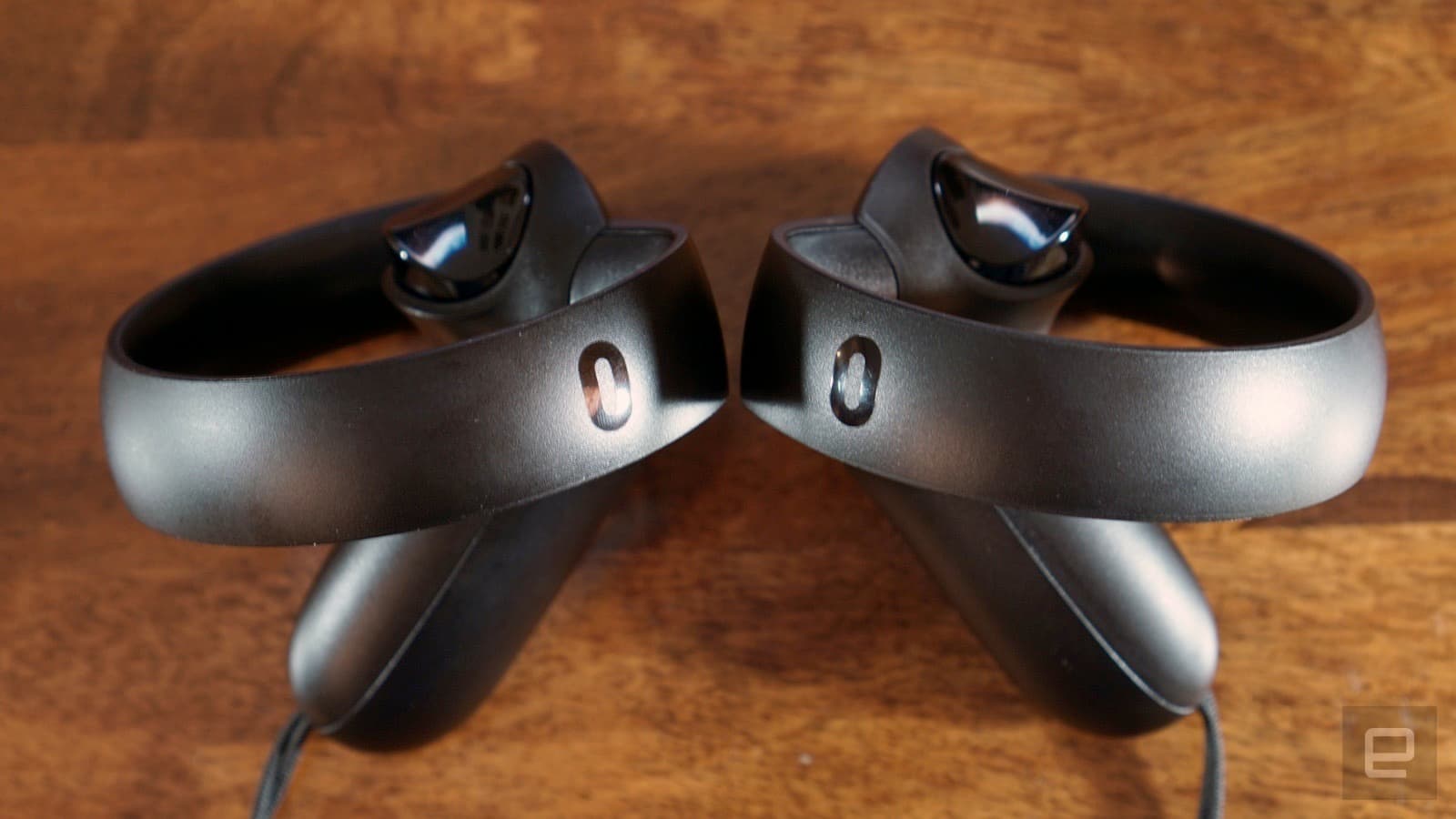Tag Archives: Nate Mitchell
Oculus co-founder Nate Mitchell is the latest to leave Facebook
 One more Oculus co-founder is heading for the exits. Software architect Nate Mitchell has decided to leave Facebook, explaining it only as a decision to "move on." He didn't say where he might be going next, but planned to "recharge" and spend time...
One more Oculus co-founder is heading for the exits. Software architect Nate Mitchell has decided to leave Facebook, explaining it only as a decision to "move on." He didn't say where he might be going next, but planned to "recharge" and spend time...
Oculus put privacy-mocking jokes inside Touch controllers
 Oculus co-founder Nate Mitchell said tens of thousands of Touch controllers have jokes mocking privacy printed on an internal component. The so-called easter eggs include "This Space For Rent" and "👁Big Brother is Watching👁," though Mitchell said the...
Oculus co-founder Nate Mitchell said tens of thousands of Touch controllers have jokes mocking privacy printed on an internal component. The so-called easter eggs include "This Space For Rent" and "👁Big Brother is Watching👁," though Mitchell said the...
Oculus VR’s ‘Crescent Bay’ Prototype Hints at Soon-to-Come Retail Version

Apart from Facebook’s Oculus Rift bug bounty program from last month, nothing noticeable happened in Oculus VR’s backyard since the social network acquired it. Now, the ‘Crescent Bay’ prototype and the recent rumors suggest that a retail version should be launched soon, quite possibly at the company’s conference.
Since there is a new prototype and Facebook has been concerned about ways to perfect Oculus Rift, it’s rather clear that the Oculus VR team has been busy lately, and not just silent. ‘Crescent Bay’, as this prototype VR headset is known as, represents a major step forward for the company, and is considered by CEO Brendan Iribe “as big a leap as from DK1 to DK2.”
Among the most notable improvements over the first two developer kits, a couple worth mentioning are the 360 degree tracking and integrated audio. The better resolution, correlated with the improved refresh rate, should make the gaming experience a lot more immersive.
Oculus VR implemented in its latest prototype a 3D audio technology developed by RealSpace 3-D, which was used under a license. Iribe pointed out that ‘Crescent Bay’ “allows for sustained presence… this allows you to achieve the impossible and believe you are in a world comfortably. It’s getting much, much closer to consumer Rift.”
Another important news is the launch of the Oculus Platform, a store where developers will contribute their VR apps. I assume this will resemble Google’s Play Store or Apple’s iTunes Store, in that it will feature games and apps, both with and without charge. First of all, the Oculus Platform will be available on Samsung’s Gear VR this fall, since Oculus VR was involved in the development of the Korean tech giant’s headset. Soon after that, the store should make its way to PCs and mobile devices.
Luckily for anyone wanting to access the store, taking the headset off won’t be necessary, “so that anyone can dive in and explore the Oculus ecosystem from the start,” as Nate Mitchell, Oculus VR’s VP of product explained. As Mitchell pointed out, the main purpose of the Oculus Platform is to help users discover and buy new content.
There’s a bright future for VR headset makers and virtual reality app developers, and it’s a certainty that Facebook was well aware of that when it acquired Oculus VR.
Be social! Follow Walyou on Facebook and Twitter, and read more related stories about the Oculus Rift hack that enables POV on the Black Armor drone, and the Oculus VR Crystal Cove prototype.
Oculus Rift could work on current and next-gen consoles
Think virtual reality is the exclusive playground of the PC gaming elite? It doesn't have to be. Oculus VR's Nate Mitchell says it's a matter of development support and interest. "Basically, the bar for a great VR experience is roughly 60 frames a second with stereoscopic 3D support in Vsync," said Mitchell in a recent interview. "The biggest challenge, actually, is working with the console platform providers, Microsoft and Sony, to make your peripheral a licensed peripheral." Oculus isn't reaching out to consoles, however -- Mitchell notes that while the current generation can reach 60fps in some cases, it often struggles to meet the demands of the Oculus Rift headset. Still, he admits there's no reason it couldn't work, and seems optimistic about the incoming console generation. "We'd definitely love to work with the console manufactures as we go down the road to get the Rift onto those platforms."
Filed under: Gaming, Peripherals
